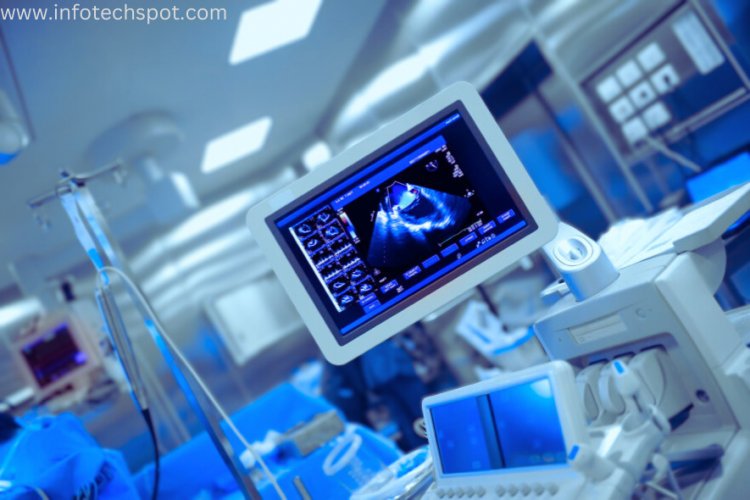Medical Tech Advancements
In this article, we will delve into the world of medical technology, exploring its history, current innovations, and the remarkable impact it has had on modern healthcare

Introduction:
Medical technology has revolutionized the healthcare industry, transforming the way we diagnose, treat, and manage various medical conditions. From advancements in surgical procedures to the development of life-saving devices, the field of it continues to push boundaries and improve patient outcomes. In this article, we will delve into the world of medical technology, exploring its history, current innovations, and the remarkable impact it has had on modern healthcare.
The Emergence of Medical Technology:
It has come a long way since its inception. In the early days, simple tools like scalpels and stethoscopes laid the foundation for medical practice. However, with rapid technological advancements, more sophisticated instruments and devices were introduced. X-rays, developed in the late 19th century, allowed physicians to visualize internal structures without invasive procedures. The discovery of antibiotics revolutionized the treatment of infectious diseases, saving countless lives.
Breakthroughs in Diagnostic Technology:
Accurate diagnosis is crucial for effective treatment. Over the years, it has witnessed remarkable advancements in diagnostic tools and techniques. Magnetic Resonance Imaging (MRI) and Computed Tomography (CT) scans provide detailed images of the human body, aiding in the detection and monitoring of various conditions. Molecular diagnostic tests, such as genetic screening and biomarker analysis, have enabled the early detection of diseases, enabling timely intervention and personalized treatment plans.
Advancements in Surgical Technology:
Surgical procedures have significantly evolved with the advent of it. Minimally invasive techniques, such as laparoscopy and robotic-assisted surgery, have revolutionized the field, reducing surgical trauma and enhancing patient recovery. Advanced imaging systems and surgical navigation tools provide surgeons with real-time visual guidance, increasing precision and minimizing risks during complex procedures. Furthermore, 3D printing technology has enabled the creation of patient-specific implants and prosthetics, improving outcomes for individuals with unique anatomical needs.
Innovations in Medical Devices:
Medical devices play a vital role in patient care and management. From implantable pacemakers and insulin pumps to prosthetic limbs and artificial organs, these devices have transformed the lives of millions worldwide. Continuous Glucose Monitoring (CGM) systems allow individuals with diabetes to monitor their blood sugar levels, enabling proactive management and reducing complications. Wearable health trackers and smartwatches provide valuable data for preventive care and wellness monitoring. The Internet of Things (IoT) has further expanded the possibilities, connecting devices and facilitating remote patient monitoring and telemedicine.
Enhanced Treatment Modalities:
Medical technology has led to significant advancements in treatment modalities across various medical specialties. Radiation therapy has become more precise and targeted, minimizing damage to healthy tissues during cancer treatment. Robotic prosthetics and exoskeletons have restored mobility and independence for individuals with limb loss or paralysis. Telemedicine and virtual healthcare have gained prominence, enabling remote consultations and access to medical expertise, particularly in underserved areas.
The Future of Medical Technology:
Its potential seems boundless, with ongoing research and development promising even more remarkable innovations. Artificial intelligence and machine learning algorithms hold tremendous potential for data analysis, aiding in diagnosis, treatment planning, and drug discovery. Gene editing technologies like CRISPR-Cas9 offer possibilities for genetic manipulation, potentially curing genetic disorders. Nanotechnology holds promise for targeted drug delivery and early disease detection at the cellular level. As it continues to advance, it will undoubtedly reshape healthcare and improve patient outcomes.
Conclusion:
It has transformed healthcare, empowering medical professionals, and improving patient care. From diagnostic tools to surgical advancements, and medical devices to cutting-edge treatment modalities, the impact of it is undeniable. As we look to the future, the ongoing development of medical technology will pave the way for further advancements, ultimately enhancing the quality of healthcare and saving more lives. Embracing and investing in these technological innovations is crucial to ensure a healthier and brighter future for all.













